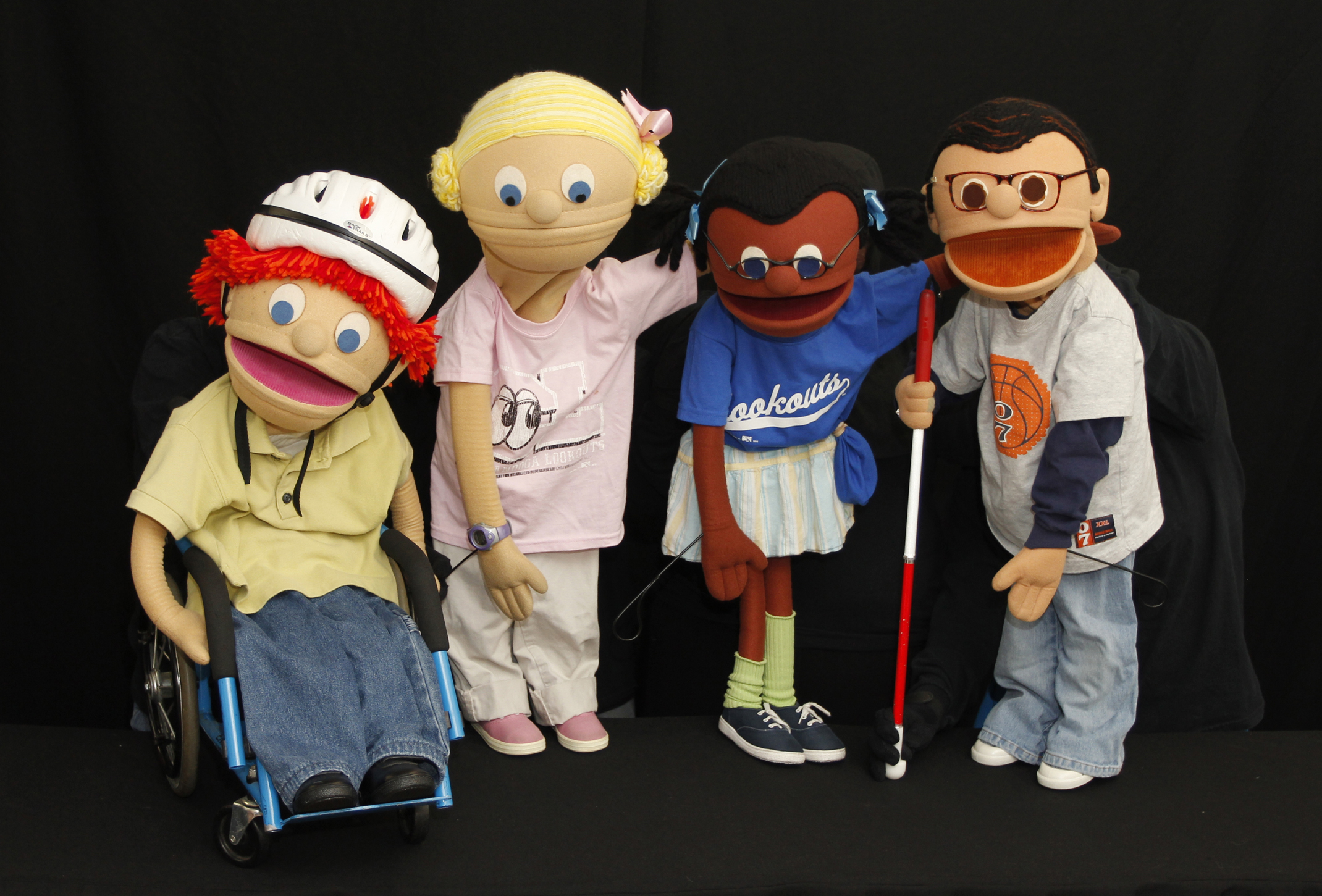Kids on the Block finds handy way to promote understanding
Friday, January 1, 1904
 Kids on the Block puppets, from left, are Mark Riley, Brenda Debrowski, Melody James, and Renaldo Rodriguez, pose after a puppet show at the Kids on the Block offices on East EighthStreet in downtown Chattanooga. The organization works to educate and connect with children on issues like child abuse and divorce through the art of puppetry.
Kids on the Block puppets, from left, are Mark Riley, Brenda Debrowski, Melody James, and Renaldo Rodriguez, pose after a puppet show at the Kids on the Block offices on East EighthStreet in downtown Chattanooga. The organization works to educate and connect with children on issues like child abuse and divorce through the art of puppetry.DID YOU KNOW?• Kids on the Block is a national organization that started in 1977 in Maryland.• The Chattanooga branch began in 1979.• The local troupe uses more than 100 puppets in its 42 programs.• Kids on the Block was chosen as nonprofit of the year in 2012 by the Chattanooga Chamber of Commerce.
Renaldo Rodriguez was born blind, but he says he can do all the things other kids do, just in his own way.
"Sometimes, guys, I have to do things a little differently, and that's A-OK," he said.
By the way, Renaldo is a puppet.
He is one of the characters created by Chattanooga's Kids on the Block, a group that uses puppetry to teach children about social issues, special needs and accepting differences.
"Children will share secrets with the puppets that they wouldn't normally share with adults," said Kelly Williams, executive director of Kids on the Block. "Adults can be a little bit intimidating for children, but children find it comfortable or nonthreatening to talk to the puppets."
Kids on the Block is the beneficiary of the proceeds from the Southern Brewers Festival this weekend. Over the past six years, more than $700,000 has been donated by Big River Grille & Brewing Works to Kids on the Block.
The funds have helped the organization to include two additional counties in its outreach area, to increase the number of programs and performances, and to hold training camps in the art of bunraku puppetry, Williams said.
Bunraku is an ancient style of Japanese puppetry. All the puppeteers are nationally certified bunraku trainers. Kids on the Block is also a licensed child-abuse prevention agency.
"I'm learning a lot about child abuse," said Michelle Callahan, a recent addition to the Kids on the Block staff. "I had zero idea that it happens so much, but kids come up and talk to the puppets about it."
"We're reaching more children and giving them a positive example to make good decisions and accept differences," said staff member Wendy Davis.
Davis is a veteran of the organization, having been with Kids on the Block for more than 13 years. When she began, she said, the group served nine counties. It now serves 14. The age range of the children has expanded.
Wendy is the woman behind Mark Riley, another signature puppet.
Born with cerebral palsy, Mark is in a wheelchair - a cruiser, he calls it - and is used in skits to help children understand accepting differences. Each puppet has a personality, voice, background and family story. For example, Mark has a twin brother who does not have cerebral palsy.
"Puppets are very valuable in teaching children about important topics," said Sue Ivey, who has been with Kids on the Block for seven years. She manipulates and voices Renaldo Rodriguez.
"Kids find puppets more relatable than adults," said Carly Lewallen, who has been a puppeteer for three years. "They look at the puppets as their peers."
